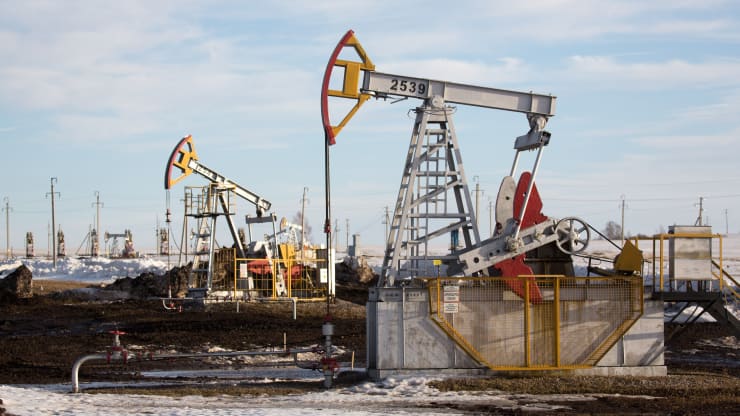Nigeria’s oil output from Production Sharing Contracts (PSCs) with partnering firms has reached a historic low of 34 percent over the past year, according to a comprehensive review of the latest Oil and Gas Report released by the Nigeria Extractive Industries Transparency Initiative (NEI TI).
This dramatic decline underscores the nation’s persistent challenge of meeting its crude oil export commitments, despite its status as Africa’s largest oil producer with abundant crude reserves.
The NEITI report, covering the year 2021, paints a grim picture of the state of PSCs in Nigeria. Out of the 35 PSC blocks, only 12 recorded any production, while a staggering 23 blocks, representing 66 percent of the total, remained entirely dormant.
The Nigerian National Petroleum Company Limited (NNPC), representing the federation, participates in these PSCs, where partnering oil companies finance operations in exchange for future benefits, such as Petroleum Profit Tax (PPT), royalties, and other bonuses.
NEITI’s report reveals that production from these PSCs has dwindled significantly. “In 2021, only 12 (34 percent) of the PSC blocks recorded production, while 23 other blocks, representing 66 percent of the total number of PSC blocks, did not produce,” the report stated.
This production amounted to 242.96 million barrels, a mere 42.92 percent of the nation’s total oil production for the year.
Despite ongoing efforts to boost production, Nigeria has been unable to raise its oil exports for over three years, consistently falling short of its required OPEC quota by at least 560,000 barrels per day.
This shortfall severely hampers the country’s ability to generate much-needed foreign exchange.
NEITI has issued a crucial recommendation in response to this crisis. It calls on the Nigerian Upstream Petroleum Regulatory Commission (NUPRC) and NNPC to urgently review the technical and operational constraints hampering production from idle PSC blocks, with the goal of optimizing these arrangements.
In cases where issues cannot be resolved, NEITI suggests considering license revocation and allocation to other interested parties.
Also, the NEITI report highlights losses in the oil sector due to theft and sabotage. In 2021, a total of 29 companies suffered crude oil losses amounting to 37.57 million barrels. The theft and sabotage were primarily concentrated in three terminals: Bonny, Forcados, and Brass, with Bonny experiencing the highest volume of theft at 28.91 million barrels.
Cumulatively, this resulted in a substantial loss of 19 percent of production delivered into these terminals.
The report also notes that companies reported deferred crude production of 70.09 million barrels in 2021, attributing it mainly to repairs and maintenance.
Concerns regarding transparency and accountability are raised as the report reveals discrepancies in revenue records. While $194.85 million and N9.73 billion were earned from pipeline transportation revenue during the period, NEITI highlights that the naira receipt had yet to be remitted at the time of the report, and there was inadequate disclosure of tariff rates and volumes.
Similarly, $702.19 million and N343.56 million in miscellaneous revenue from Joint Venture (JV) operations raised questions, as the naira receipt remained unremitted to the federation. NEITI urges NNPC and partnering companies to promptly provide a basis for revenue computation and ensure that all due revenues are remitted as soon as received.
The report concludes by emphasizing the need for improved data management processes and controls to prevent future discrepancies, highlighting the importance of regular monitoring, data reconciliation, and cross-verification to maintain data integrity.
As Nigeria grapples with these critical issues in its oil sector, the report serves as a stark reminder of the challenges facing one of Africa’s largest oil-producing nations.
Urgent action and reforms are required to address the declining production, losses, and revenue discrepancies in Nigeria’s oil industry.

 Naira4 weeks ago
Naira4 weeks ago
 Naira4 weeks ago
Naira4 weeks ago
 Travel4 weeks ago
Travel4 weeks ago
 Jobs4 weeks ago
Jobs4 weeks ago
 Naira3 weeks ago
Naira3 weeks ago
 Naira4 weeks ago
Naira4 weeks ago
 Investment4 weeks ago
Investment4 weeks ago
 Travel4 weeks ago
Travel4 weeks ago


























